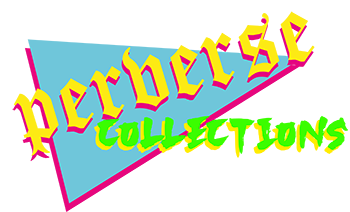
- This event has passed.
Workshop: Queer Memory and the Politics of the Archive
June 27, 2024 – June 28, 2024

Location: Museo Reina Sofia, Auditorio 200, Nouvel Building (Ronda de Atocha, esquina plaza del Emperador Carlos V, 28012 Madrid).
This event brings together activists, archivists, and historians in order to discuss the rise, evolution, current situation, and cultural politics of queer and trans archives, with a particular focus on Spanish and Southern European archives. As repositories of collective memory, sources of resistance, and inspirations for future action, the archive holds a preeminent place in the queer political imagination. This symposium will explore the relation between activism and archival practice; the particularities of queer archives and their relation with official institutions; the possibilities opened by dispersed, migrant and digital archives; and the traces of LGBTQI+ history in non-queer collections.
Day One
17:00 Welcomes
17:15 – 20:30 Screenings: LGTBQI+ Public Memory
These three programmes rescue different kinds of audiovisual documents with the purpose of reflecting on the queer presence in various types of archives, from the repositories of activist organizations to personal collections and official repertoires. It brings together videos from the documentation center Ca La Dona (Barcelona), a central space for Catalan feminism and lesbian activism, selected by audiovisual collective La calumnia (Isa Luengo and Sofía Esteve); recordings of Madrid Pride demonstrations taken by Peter Toro over several decades; and several samples from the state film archive network—the Spanish, Andalucía, and Catalunya Cinematheques. These samples include commercial shorts starring Miguel de Molina, queer performer avant-la-lettre, whose career stretched from the 1930s to the 1970s and lived in exile during Franco’s dictatorship, and experimental shorts by Carles Comas and Juan Sebastián Bollaín, active in the underground scenes of Barcelona and Sevilla during the 1970s.
17-15: 18:15
Screening: Videos from Ca la Dona
Selection from the Audiovisual Archive from the Documentation Center Ca la Dona, Barcelona. 30 min. Introduced by Isa Luengo and Sofia Esteve (La Calumnia) and followed by a conversation between Rebecca Tolosa (Ca la Dona), Isa Luego (La Calumnia) and Gracia Trujillo (Universidad Complutense de Madrid).
18:15 – 19:00
Screening: Madrid Pride Film Archive
Introduced by Peter Toro and followed by a conversation between Peter Toro (producer and audiovisual director) and Alberto Berzosa (Universidad Autónoma de Madrid/ Universidad de Murcia).
19:10 – 20:30
Screening: Perverse Desires in the State Film Archive Network.
Manolo Reyes (Claudio de la Torre, 23’, 1944). Spanish Cinematheque
Luna de sangre (José López Rubio, 23’, 1944). Spanish Cinematheque
Show de otoño (Carles Comas, 9’, 1976). Catalunya Cinematheque
Sevilla tuvo que ser (Juan Sebastián Bollaín, 9’ 1978). Andalucía Cinematheque
Day Two
9:00 Doors open
9:30 – 11:00 Roundtable: Militant Archives
Participants: Magda Costa Vallés (Centre de Documentació Armand de Fluvià del Casal Lambda); Maurizio Gelatti (Fondazione Angelo Pezzana – FUORI!); François Boureau (Mémoire des sexualités, Marseille)
Activist collectives have been the main preservers of queer collective memory. This roundtable surveys several activist-founded and -run archives with the double purpose of reflecting on the relations between militancy and ever fragile LGTBQI+ history and exploring the different conceptions of the archive underpinning particular efforts in concrete local milieus.
11:00 – 11:30 Coffee break
11:30 – 13:00 Roundtable: Dispersed, Migrant, Virtual Archives
Participants: Diego Marchante-Genderhacker (Archivo T); Amparo Villar & Inmaculada Mujika (Miradas atrevidas / Daring Gazes, ALDARTE Bilbao); Pedro Felipe Hinestrosa (Archivo Arkhé, Madrid)
In contrast to the pretended stability of official archives, queer and trans archives often take on dispersed, migrant, and liquid forms—particularly their digital versions. Digital formats, for example, promote broad access and can revitalize materials preserved in conventional formats, but may also contribute to the oblivion of what is not digitized and to the neglect of conventional supports. This roundtable will explore “unstable” and digitized archives as horizons of possibility not exempt of problems.
13:00 – 14:30 Lunch break
14:30 – 16:30 Roundtable: Queer and Trans Traces in Other Archives
Participants: Geoffroy Huard (Cergy Paris Université); Alejandro Melero (Universidad Carlos III); Daniela Ferrández Pérez (Universidad de Santiago de Compostela); María José Sola Sarabia (Emakumeen Dokumentazio Zentroa ‘Maite Albiz’, Bilbao); César Vallejo (Radio Televisión Española)
The traces of the LGTBQI+ experience are often found in non-activist archives. Sometimes, these are created with the purpose of monitoring and suppressing sexual dissidence, such as police archives or censorship archives. On other occasions, they are general archives of collective experience—like public television archives—or archives of kindred groups—like feminist collectives. This panel will explore the queer and trans presence in these repositories, the strategies for accessing and locating this often elusive presence, and how the nature of different archives determines the LGTBQI+ contents included and their treatment.
16: 30 – 17:00 Coffee break
17:00 – 18:30 Roundtable: Collective Memory and Technologies of the Archive
Participants: Pablo Hernández Miñano (L’Armari de la Memòria-Consellería de Cultura de la Generalitat Valenciana); Francisco Brives (Archivo Transfeminista-Kuir, La Neomudéjar, Madrid); Fefa Vila (UCM), Lucas Platero (URJC)
This roundtable brings together various initiatives to create queer and trans archives outside the more established historical collectives but from positions of radical commitment to sex-gender and affective diversity. They range from initiatives supported by the administration (L’armari de la memoria) to others carried out independently (ATK-La Neomudéjar), to the mixed experience of the ¿Queer Archive?, supported by the Reina Sofía Museum but carried out by artists-activists-researchers outside the museum. The roundtable will address the distinctive ways of managing memory carried out by each of these initiatives.
18:45 – 19:30 Visit to ¿Archivo Queer? – Museo Reina Sofía
Fefa Vila, Lucas Platero, compilers of the ¿Archivo Queer? (2009-2010).
